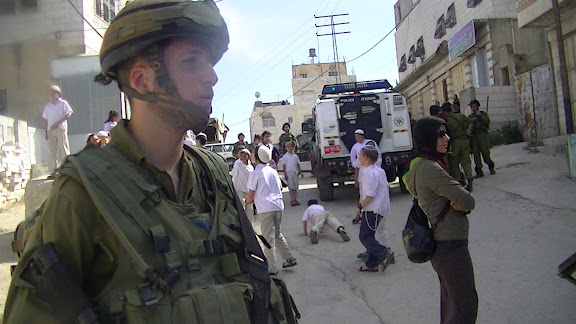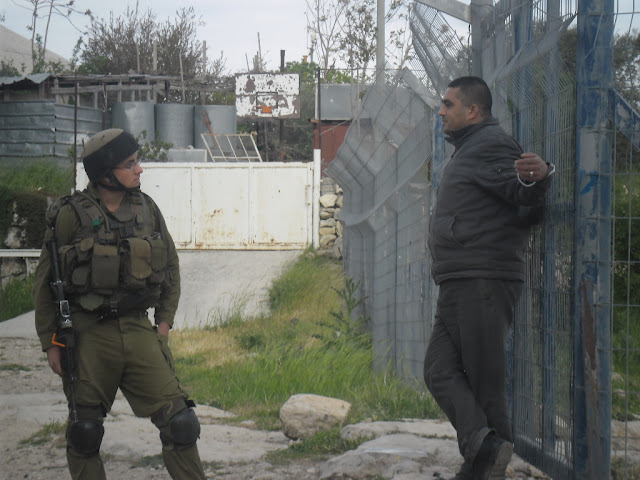Tag: Tel Rumeida
-
Hebron: Israeli settlers occupy Palestinian home
By Sunny 30 May 2012 | International Solidarity Movement, West Bank On Wednesday, May 23, a group of Israeli settlers forcefully occupied the home of a Palestinian family near the illegal Tel Rumeida colony in the Palestinian city of Hebron. In an incident that lasted 3 hours, settlers forced their way into the house and…
-
Tel Rumeida: Child settler violence through the lenses of an international activist
by Sunny 5 May 2012 | International Solidarity Movement, West Bank A group of approximately 10 to 15 soldiers displayed their ineptitude in dealing with a group of rowdy settler children, roughly between the ages of 8 to 14, who were attemptng to enter Tel Rumeida. It was an embarrassing episode for the Israeli occupation…
-
Increasing Israeli army harassment and violence against activists in Hebron
by Paige 16 April 2012 | International Solidarity Movement, West Bank In the past weeks the Israeli army has increased harassment against both Palestinian and ISM activists in Hebron (Al Khalil), a deliberate targeting of those who oppose Israeli occupation and colonization. This targeting includes the arrest of six international activists, including five ISM volunteers,…


